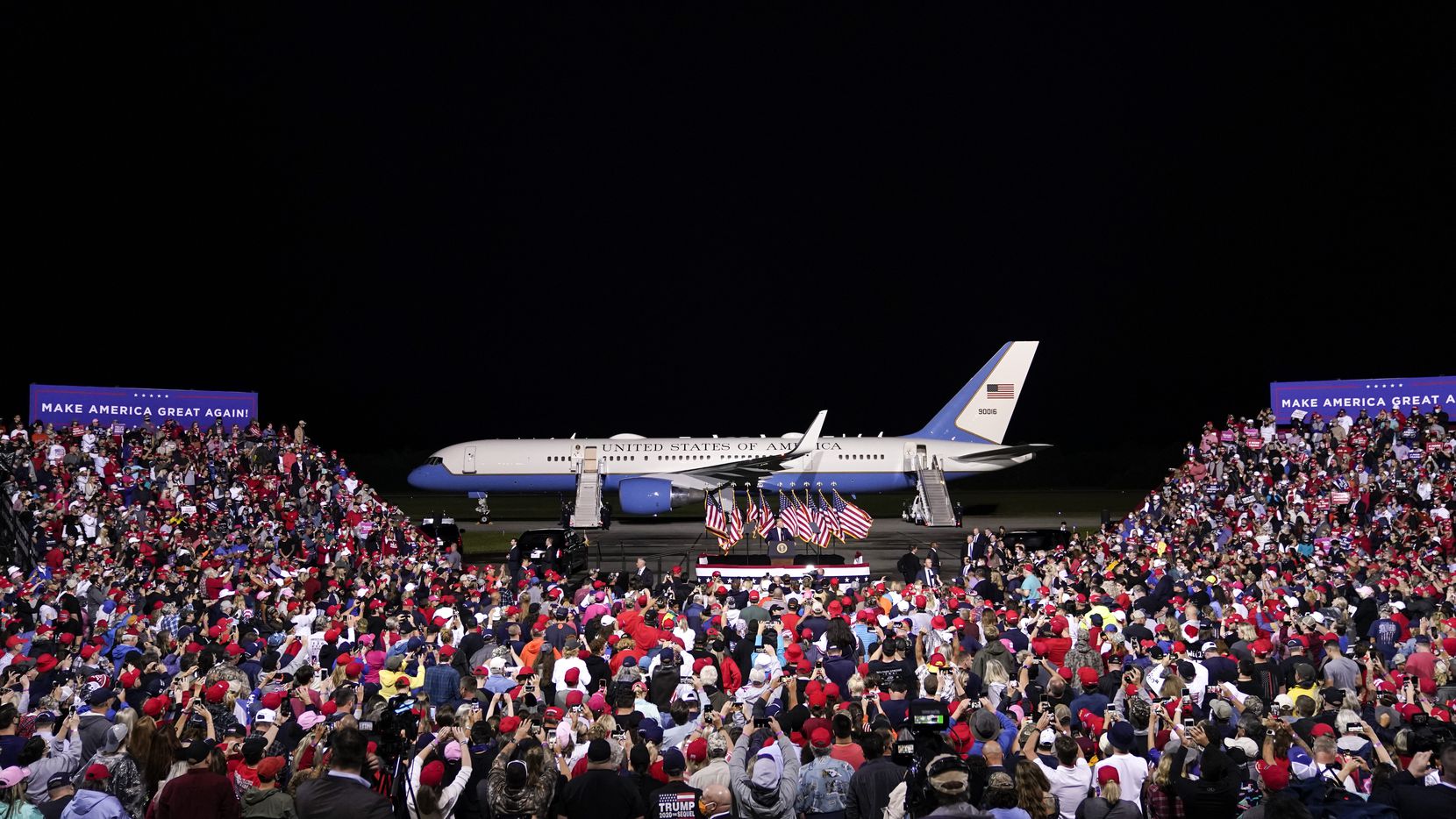
By POLITICO MAGAZINE
A disruptive presidency is coming to a close. Here’s what 35 thinkers say it revealed—not about the man, but about the rest of us.
The world has spent the past four years obsessing over President Donald Trump: his biography, his ideology, his speech, his tweets, his moods, his health, his hair. But what did the Trump era teach us about ourselves, and the country he was elected to lead?
Trump’s presidency has been a four-year war on many people’s assumptions about what was and wasn’t “American”—what a leader can call people in public, which institutions really matter, whether power lies with elites or masses. And it has forced serious arguments about what information, and what version of our history, we can even agree on.
With four years of Trump nearly behind us, Politico Magazine asked a group of smart political and cultural observers to tell us what big, new insight this era has given them about America—and what that insight means for the country’s future.
Many were alarmed to discover that our political institutions and norms are more fragile than they thought. Others pointed out the blind spots that members of the political and cultural elite have for the deep sense of dislocation and injustice that their fellow citizens feel. Some wrote optimistically about an America that is steadily becoming more diverse and inclusive, or one that has retained a powerful role in the world. Yet, even in the face of a common enemy—a once-in-a-century pandemic—“patriotism became a blunt instrument that Americans wielded against one another,” as one contributor put it.
Others questioned whether the disruptions of the past four years have really shaken us out of old patterns, and whether the political establishment has really been diminished. “The house always wins,” one wrote. And then there was this conclusion from another contributor: “At the end of Trump’s term, what I’ve learned is that I really don’t understand America well at all.”
Katherine J. Cramer is professor of political science and chair of Letters & Science at the University of Wisconsin-Madison. She is author of The Politics of Resentment: Rural Consciousness in Wisconsin and the Rise of Scott Walker.
The past few years have taught me just how removed the cultural elite in the United States is from many of the other people in this nation. By cultural elite, I mean those of us who create the knowledge and the media content people consume, as well those of us in positions of political and other decision-making power. There is a deep well of people in this country who are sure the system is not working for them, and we seem to be only coming around to recognizing how deep it goes.
Four years ago, I published a book about the feelings of resentment many rural people in Wisconsin felt toward the urban elite. When Donald Trump won in 2016, partly by tapping into this resentment, people turned to me for answers. I became aware just how surprised many in the cultural elite were about the challenges facing rural communities and the fact that many people living in these places feel they are not getting their fair share of attention, resources or respect. The shock at the closeness of the 2020 race suggests we are still unaware of the depth of this resentment.
We are removed not just from rural residents. Those of us in the cultural elite are inexcusably unaware of the challenges and perspectives of many others in this country who feel they are not getting what they deserve. George Floyd’s killing and the resurgence of the Black Lives Matter movement this past summer means it is no longer possible to ignore the centuries of violent dehumanization of Black people in this country. But how long has it taken us to confront this reality? The astonishment among white cultural elites (myself included) at the extent of police brutality until cellphone video cameras came along leaves me questioning what our democracy is actually built on. What is the infrastructure that allows the hardships of so many to remain invisible?
Tim Wu is a law professor at Columbia University and the author, recently, of The Curse of Bigness: Antitrust in the New Gilded Age.
We’ve learned something important about America’s resistance to an authoritarian takeover. Most republics, even the best of them, have struggled when confronted with a nationalist leader who shows up in bad economic times, blames everything on immigrants and foreigners, and promises to restore greatness. That’s the fate that befell, among others, the Roman, Spanish, German and Russian republics. Before Trump, it was widely thought that the written Constitution and its fabled “separation of powers” had spared the United States from a similar fate.
But over the past four years, we’ve watched constitutional checks repeatedly fail to control the president, trumped by party loyalty. Congress and the judiciary asserted limited control at best; even impeachment turned out to be just another party-line vote. What really mattered, in the end, was a different set of checks, upheld not by a document but by people: namely, the independence of federal prosecutors, the neutrality of the armed forces and the independence of the electoral system. He tried hard, but Trump ultimately couldn’t find a prosecutor to indict Joe Biden and his family. The armed forces declined to embrace Trump’s proposed occupation of liberal cities over the summer. And, finally, when it mattered, election officials, at a distance from the White House, conducted a fair vote.
In a manner that John Adams might have found satisfying, we have learned that internalized constitutional norms matter more than any external checks.
Nicholas Carr is a writer covering technology, economics and culture. His book The Shallows: What the Internet Is Doing to Our Brains was a Pulitzer Prize finalist.
“Truth Trumps Lies.” That motto, needling yet reassuring, has been a popular hashtag ever since Donald Trump’s election in 2016. But the last four years have revealed its hollowness. In the digital marketplace of ideas, where most of us now get our news, falsehoods go viral while facts go begging. An extensive MIT study of Twitter posts, published in Science in 2018, found that fake or otherwise misleading news stories are 70 percent more likely to be retweeted than truthful ones. The audience for misinformation is routinely an order of magnitude larger than the audience for accurate reports. “False news spreads farther, faster, deeper, and more broadly than the truth,” the researchers concluded.
In the 20th century, propaganda came from the top down. Tyrants would seize control of radio, TV and other mass media to broadcast their poison to the public. In the 21st century, propaganda is a bottom-up phenomenon. Falsehoods may be seeded from the White House or the Kremlin, but they circulate through the public’s own posts and tweets. Social media has allowed propaganda to be crowdsourced; it has democratized George Orwell’s Ministry of Truth. The problem won’t be solved by a naive faith in truth’s innate power to prevail over fabrication. Nor will it be solved by the removal from office of a mendacious president. Without far-reaching institutional, educational and legal remedies, lies will continue to trump truth.
For the entire article go to: www.politico.com









